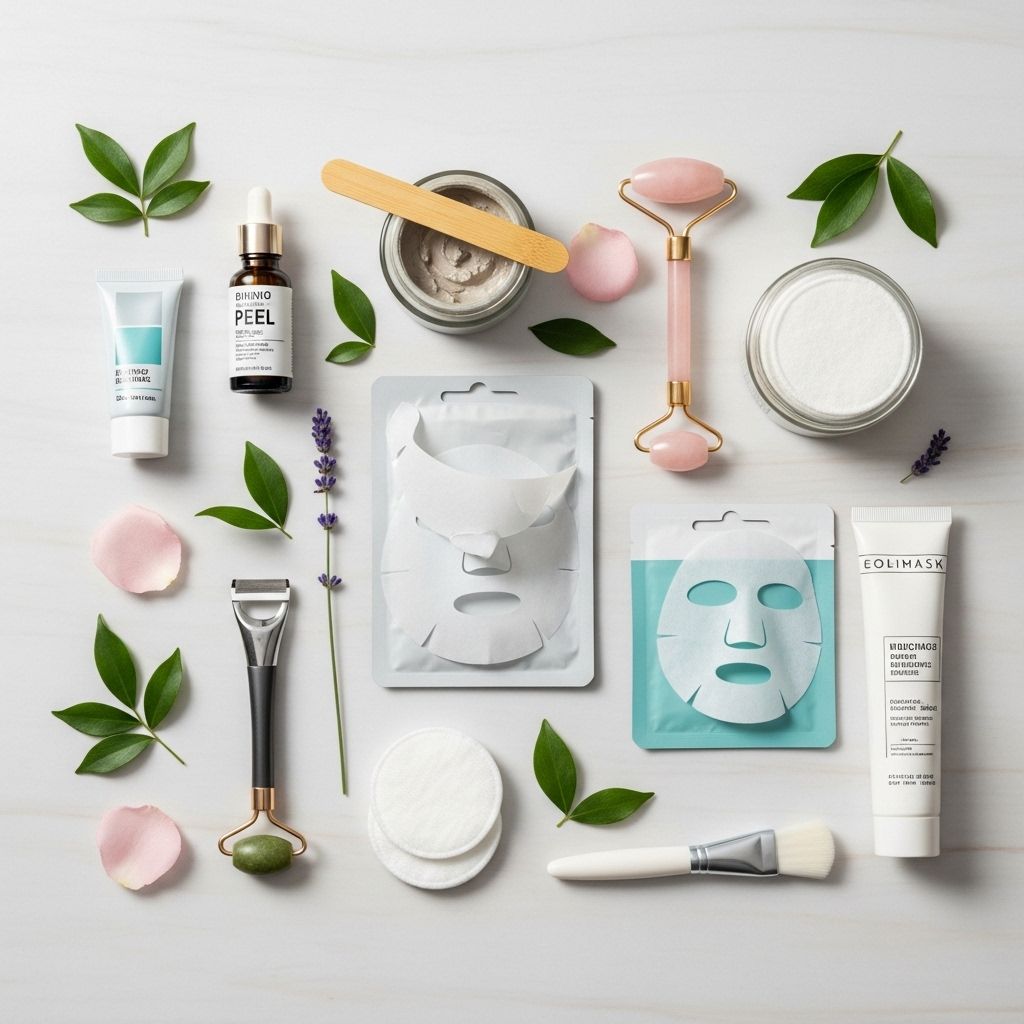Weekly Skincare Routine: Masks, Peels & Tools Guide
Consistent care with specialized treatments boosts softness and refines your complexion.

Table of Contents
- Introduction
- Basics of Skincare Routine
- Face Masks
- Chemical Peels
- Skincare Tools
- Frequently Asked Questions (FAQs)
Introduction to Weekly Skincare Routine
A well-structured weekly skincare routine is essential for maintaining healthy and glowing skin. This involves not just daily cleansing and moisturizing but also incorporating specific treatments like masks, peels, and using specialized tools to enhance skin health. In this guide, we will explore each component in detail to help you create a personalized weekly skincare routine.
Basics of Skincare Routine
Before diving into the specifics of weekly treatments, it’s crucial to understand the foundational elements of a daily skincare routine. This typically includes:
- Cleansing: Removing dirt and impurities from the skin using a gentle cleanser.
- Moisturizing: Hydrating the skin to prevent dryness and maintain a healthy barrier.
- Sun Protection: Using sunscreen daily to shield the skin from UV damage.
Face Masks
Face masks are a key component of a weekly skincare routine, offering deep nourishment or detoxification, depending on the type. Here are some popular face mask types:
- Hydrating Masks: Best for dry or sensitive skin, these masks provide intense moisture.
- Clay Masks: Effective for oily skin, they help in purging pores of excess oil and impurities.
- Exfoliating Masks: Containing alpha-hydroxy acids or beta-hydroxy acids, these masks help remove dead skin cells.
Chemical Peels
Chemical peels are more intense treatments that can be incorporated into your routine for deeper skin rejuvenation. They involve applying a solution to remove the top layers of the skin, revealing smoother, brighter skin.
Common types of peels include:
- Glycolic Acid Peels: Effective for reducing fine lines and hyperpigmentation.
- Lactic Acid Peels: Suitable for sensitive skin, offering gentle exfoliation.
- Salicylic Acid Peels: Ideal for acne-prone skin, helping to unclog pores.
Skincare Tools
Skincare tools can enhance the effectiveness of your routine by providing additional exfoliation, increasing product absorption, or offering a gentle massage to boost circulation.
- Exfoliating Brushes: Help remove dead skin cells and improve skin texture.
- Micro-needling Tools: Stimulate collagen production and improve skin elasticity.
- Face Massagers: Enhance blood flow and reduce facial tension.
Frequently Asked Questions (FAQs)
Q: How often should I use a face mask in my weekly routine?
A: Use a face mask once or twice a week, depending on your skin type and concerns.
Q: Are chemical peels safe for all skin types?
A: Chemical peels can be safe for most skin types, but it’s important to consult a dermatologist before starting, especially if you have sensitive skin.
Q: Can I use skincare tools on sensitive skin?
A: Yes, but it’s advisable to start with lower intensities and monitor your skin’s response to avoid irritation.
References
- https://www.theinkeylist.com/pages/skincare-routine-guide
- https://www.cerave.com/skin-smarts/skincare-routines
- https://www.dermalogica.com/blogs/living-skin/build-a-skin-routine
- https://sokoglam.com/pages/10-step-korean-skincare-routine
- https://www.healthline.com/health/beauty-skin-care/routine-daily-monthly-weekly
- https://health.clevelandclinic.org/what-products-do-i-actually-need-for-a-simple-everyday-skin-care-routine
Read full bio of medha deb












